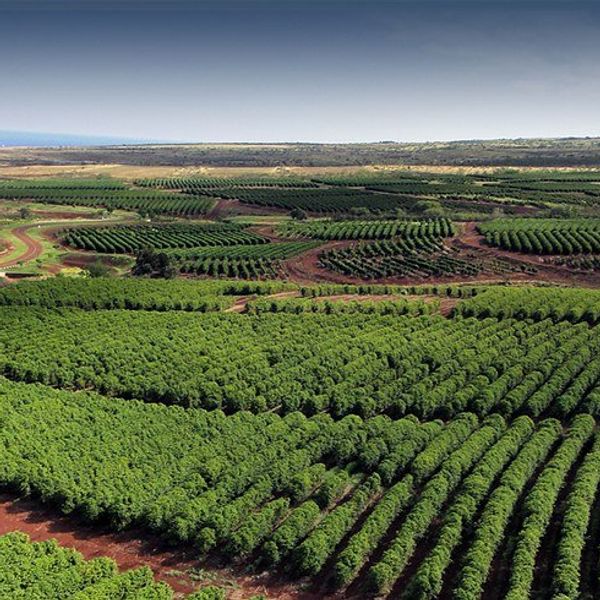Organic foods benefit the earth and all its inhabitants. The process of growing genetically engineered food involves the heavy use of pesticides, and these chemicals keep insects or other pests from destroying crops. However, pesticides are drawn into the earth and force biotech engineers to genetically alter foods to prevent the absorption of chemicals into the product. On the other hand, organic foods grow crops naturally without the use of chemicals or alterations, benefiting wildlife and families across America. Organic foods are not only safer and healthier for the consumer, but are also less harmful to the environment.
It is a fact that organic fruits and vegetables contain more disease fighting nutrients than genetically modified products. The genetic altering of Genetically Modified Organisms (GMOs) and the use of pesticides leaves consumers, especially children, fetuses, and pregnant women, more vulnerable to diseases. Pesticides have been linked to headaches, nausea, fatigue, systemic poisoning, and reproductive harm. A study conducted by Professor Carlo Leifert at Newcastle University shows that there are 19 to 69% more antioxidants present in organics foods than in GMOs. Antioxidants, such as vitamin C or E, are what help reduce the risk of contracting a wide range of chronic diseases, including cancer. The greater percentage of valuable antioxidants found in organic foods make the product safer and more nutritious than genetically engineered products.
Furthermore, the antioxidants in organic foods make the product taste better. Professor Leifert’s study found that high levels of nitrogen from synthetic fertilizers GMO farms use, produce great amounts of sugars and starches in fruits and vegetables which destroys natural, nutritious and flavorful antioxidants. Charles Benbrook of Washington State University, who contributed to Leifert’s project, explains that: “The chemicals that a plant produces to respond to stress become part of that plant’s signature taste. People are yearning for more intense flavors, and there’s good news that organic farming accentuates flavor in fruits and vegetables.” The lack of synthetic fertilizers in organic farming allows the crops to develop those antioxidants and therefore enhances the natural taste, smell, and mouthfeel of the food.
The pesticides sprayed over genetically engineered foods contaminate the environment. Chemicals in the pesticides used absorb into the soil and nearby water sources. Not only does this endanger wildlife surrounding the farms with access to the polluted water, but also destroys highly beneficial insects, soil organisms, and worms who are natural pest-eaters that maintain soil health. This weakens immune and plant root systems and in turn, the food. Yet in organic farms, there are 40% more roots colonized by nutrition assisting fungi, three times more earthworms, and twice as many pest-eating arthropods than GMO farms. Also, since organic food production avoids the use of pesticides it does not pose any risk of soil and water pollution. Growing organic foods are safer and more beneficial for the environment.
Organic farms also combat global warming. Synthetic fertilizers and pesticides release carbon into the atmosphere. Scientists at the Rodale Institute found, through a 23-year study, that 3,500 pounds of carbon dioxide per acre of GMO farm was freed into the air. This means that GMO farming alone produces around 580 billion pounds of carbon dioxide on an annual basis. Organic farms do not allow any carbon to enter the atmosphere because no chemicals are used in the organic farming process.
Admittedly, organic farming is not as efficient as GMO farming. Inorganic crops grow faster and can be delivered to the consumer sooner than organic products. Although that is true, a two-decade long study conducted by Paul Mäder of the Research Institute of Organic Agriculture, and David Dubois of the Swiss Federal Research Station for Agroecology and Agriculture in Switzerland shows just how efficient organic farming can be. Their organic farm procured 80% of the crops their inorganic farm produced. Not only does this study prove the close efficiency of organic farming, but shows evidence of greater benefits: 56% less energy was required than with growing genetically modified products, and nutrient-cycling microbes were present in the organic soil to offer a greater percentage of nutrients to the food. Organic farms can be nearly as efficient as, and procure many more benefits than, GMO farms.
One might object that The Food and Drug Administration (FDA) and biotech engineering companies assure their foods are safe. It is true that they have tested and studied their genetically engineered products before making them readily available to the consumer. However, those tests were conducted only in the short term. Longer studies have proven that the consumption of GMOs in animals causes internal organ damage, slowed brain growth, and thickening of the digestive tract. Additionally, escalated food allergens and gastro-intestinal problems in humans have been linked to the digestion of genetical modified foods. In the short term GMOs may seem safe, but long term studies prove that there are risks of consumption.
When walking through the produce section of a supermarket, you may notice a vast price difference between a regular and an organic product. The average cost of organic foods are 47% higher than GMOs. It is understandable for consumers to hold off on changing their diet to be completely organic due to the fact that organic foods can be much more expensive than inorganic products. Nevertheless, it is important to keep in mind that not all of those foods are expensive. Depending on the store, some products are actually equal to or less expensive than their GMO competition. Like with the organic honey from Amazon Fresh that costs 13% less than regular honey, and organic olive oil from Whole Foods is valued the same as the inorganic version.
Why buy organic? The answer is simple. Genetically modified farms and foods put you and our environment at risk. The pesticides GMOs use are absorbed into the earth, demolish the soil’s nutrients, and endanger wildlife by polluting nearby water sources. Also, valuable nutrients that lower the consumer’s risk of contracting chronic diseases are not as present in GMOs than in organic foods. In addition, organic farms have the ability to efficiently grow 80% of the crops an inorganic farm produces, combat global warming, taste better, and provide up to 69% more nutrients in those products. The costs of growing and consuming genetically engineered products are much greater than the extra dollars a family may invest in buying organic foods.
To learn more about organic foods in comparison to GMOs, visit the articles: "Organic Foods are Tastier and Healthier, Study Finds," "Clear Differences Between Organic and Non-organic Foods, Study Finds," "Organic Farms Reap Many Benefits," and "Organic Agriculture: What are the environmental benefits?"





















